This morning Zoho, known for SMB focused SaaS offerings in the areas of productivity, collaboration, business processes launched an Accounting app: Zoho Books. I typically don’t do detailed product reviews, when I see the first good ones, will link to them – just a few points here and then let’s discuss how it rounds out Zoho’s overall strategy.
The following video introduction is a bit “cutesy”:
-and that’s quite intentional. In fact simplicity is one of the key points in Zoho Books:
- Clear, streamlined UI, tabs, easy terminology –i.e. Money In, Money Out. This service is clearly targeted at non-accountants, which is most of us in a small business – hey, even I can understand most of it.

- That said, Books offers the opportunity to share data and collaborate with accountants (Ouch, did I really needed that reminder for tax time?;-) )
- Multi-currency support – this is typically a later add-on in many systems, but Zoho has a wide international presence with most of their other services
- Integration with Zoho CRM, Invoice, Mail – somewhat basic now, will be improved as we’ve seen with the rest of Zoho’s offerings
- Support for electronic payment systems like Paypal, Google Checkout, Authorize.net. This is a “hidden treasure” inherited from twin service Zoho Invoice, which is a subset of Book’s functionality and can be easily upgraded. Why hidden? Because relatively few know that Paypal offers 50 cent (yes, that’s $0.50 per transaction) Business Payments NOT available through the Web, only via their API, i.e. apps like Zoho Invoice and Boooks.
Having said that, is Zoho Books a Quickbooks killer?

(Cross-posted @ CloudAve » Zoli Erdos)



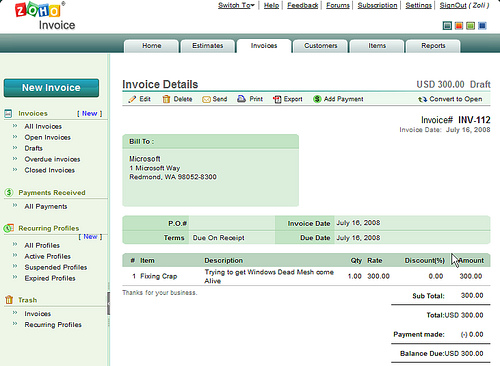


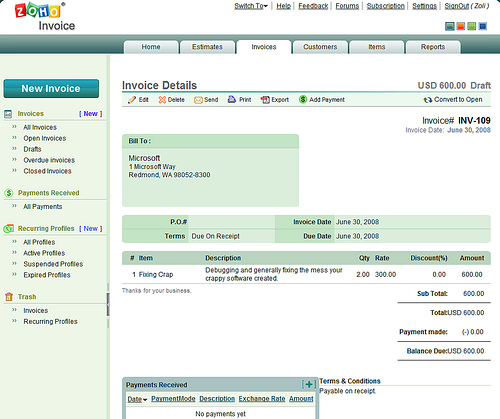

 You’d think at least Microsoft’s own products are compatible with Vista. Well, sort of. MS Money users who converted from Quicken may be out of luck.
You’d think at least Microsoft’s own products are compatible with Vista. Well, sort of. MS Money users who converted from Quicken may be out of luck.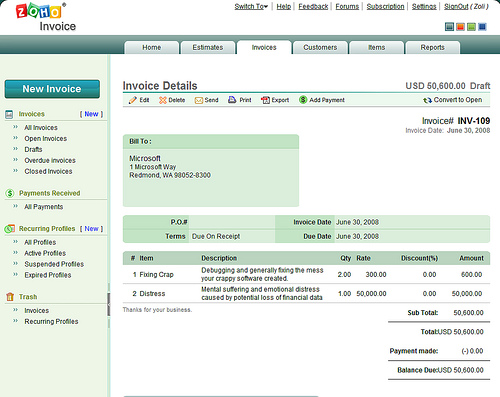
 My poor experience was with MS Money 2007, but with Money Plus, the 2008 version of the product line Microsoft shows true ignorance to users’ legacy data needs. Money Plus comes in four editions: Essentials, Deluxe, Premium, and Home & Business.
My poor experience was with MS Money 2007, but with Money Plus, the 2008 version of the product line Microsoft shows true ignorance to users’ legacy data needs. Money Plus comes in four editions: Essentials, Deluxe, Premium, and Home & Business. Several of my favorite Firefox extensions did not make it to 3.0 for compatibility reasons, but I found functional equivalents for almost all. Amongst the (temporary) losses is
Several of my favorite Firefox extensions did not make it to 3.0 for compatibility reasons, but I found functional equivalents for almost all. Amongst the (temporary) losses is  The upgrade itself was anything but smooth sailing, and I’m not referring to the initial
The upgrade itself was anything but smooth sailing, and I’m not referring to the initial 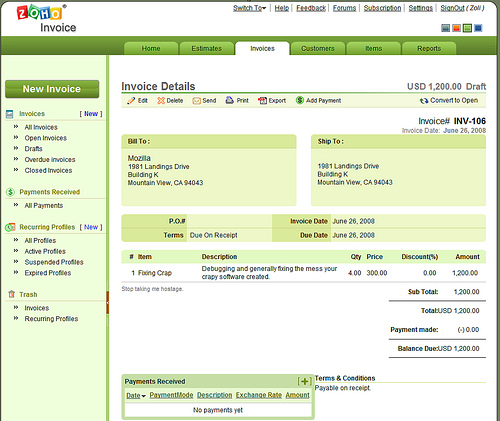
 Yes, the title isn’t a mistake: TechCrunch is no longer just powerful media, Mike now can single-handedly release new products.
Yes, the title isn’t a mistake: TechCrunch is no longer just powerful media, Mike now can single-handedly release new products.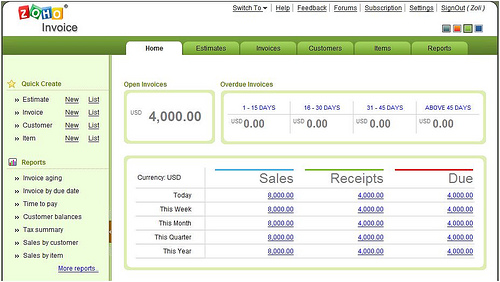





Recent Comments